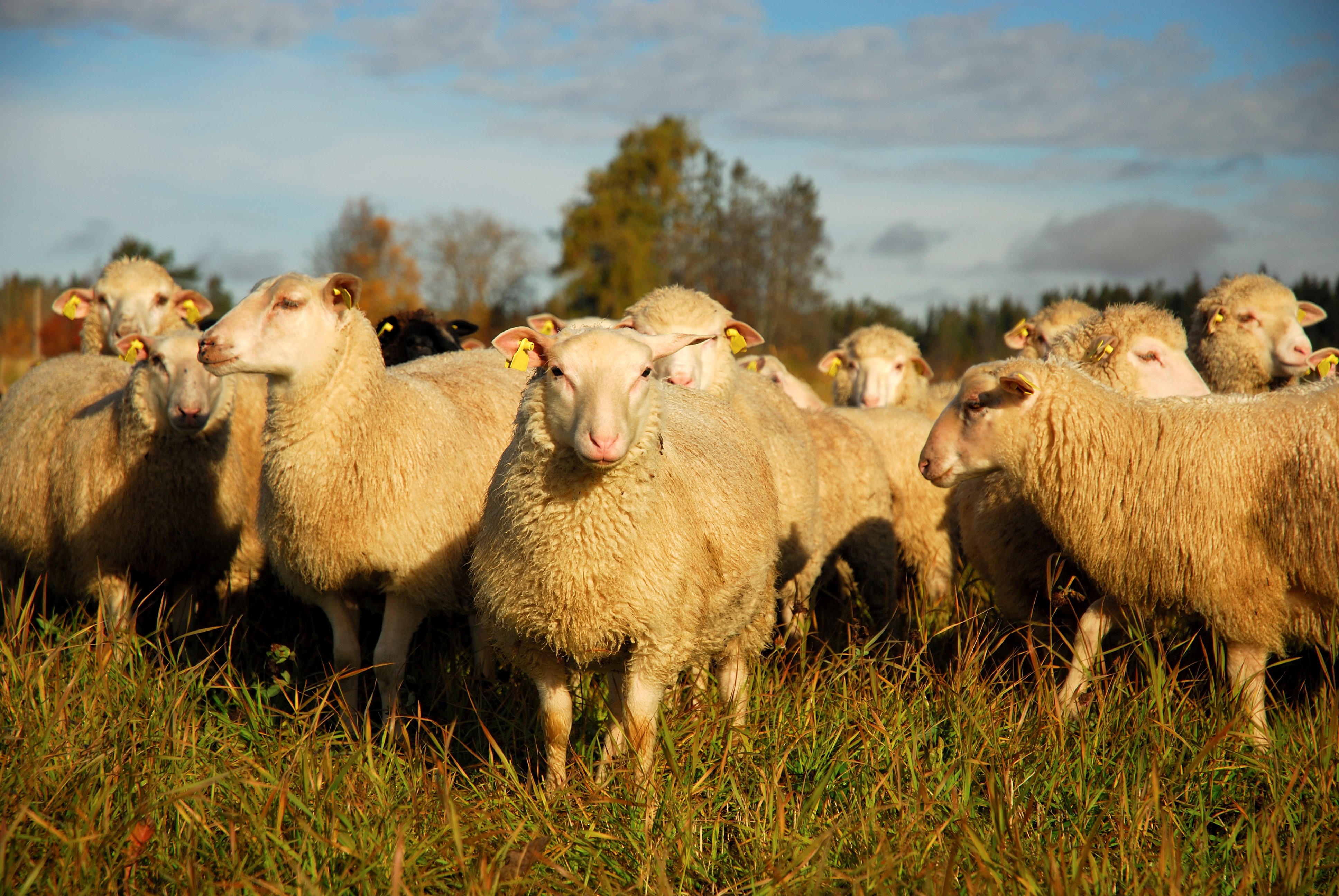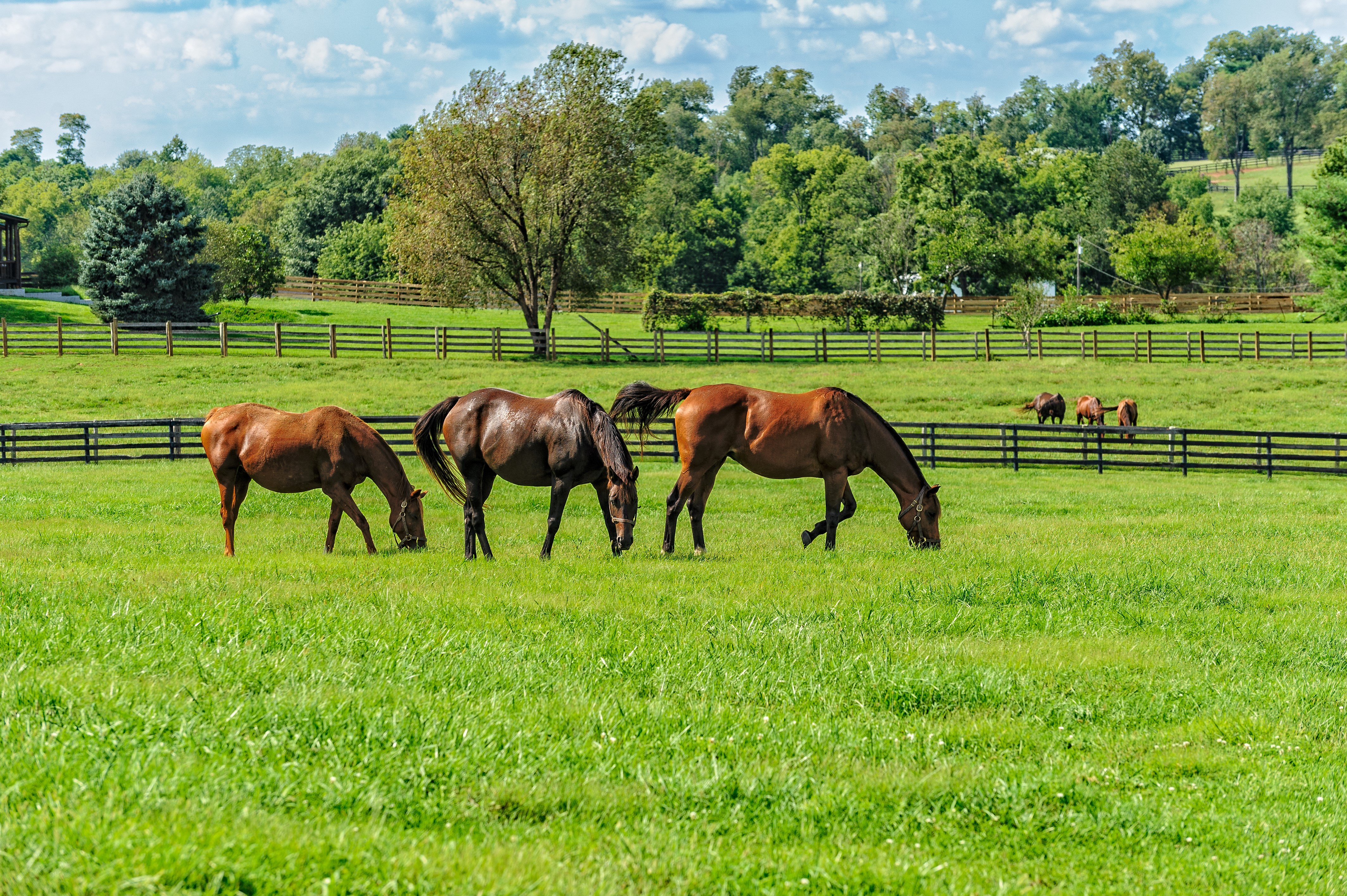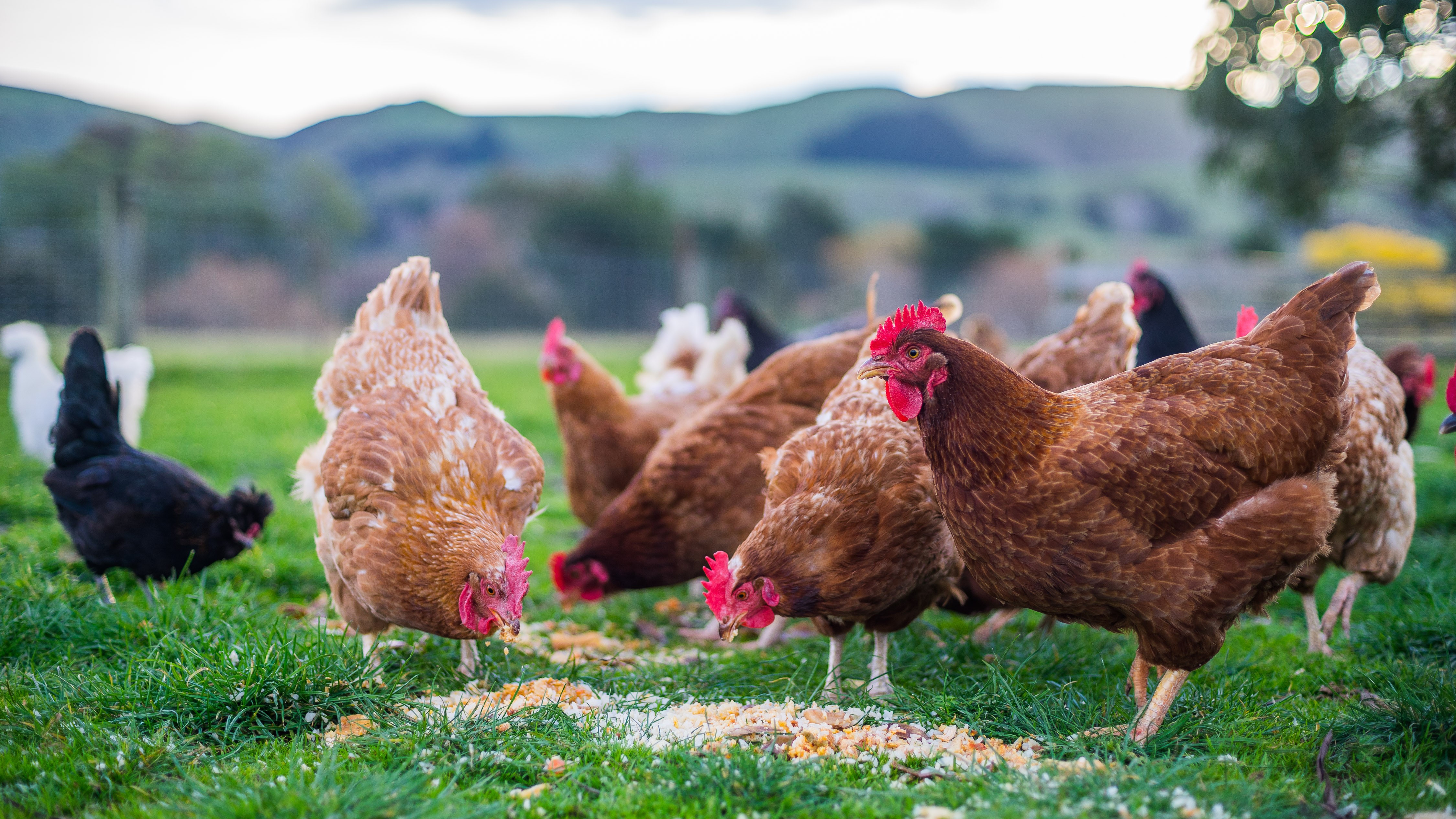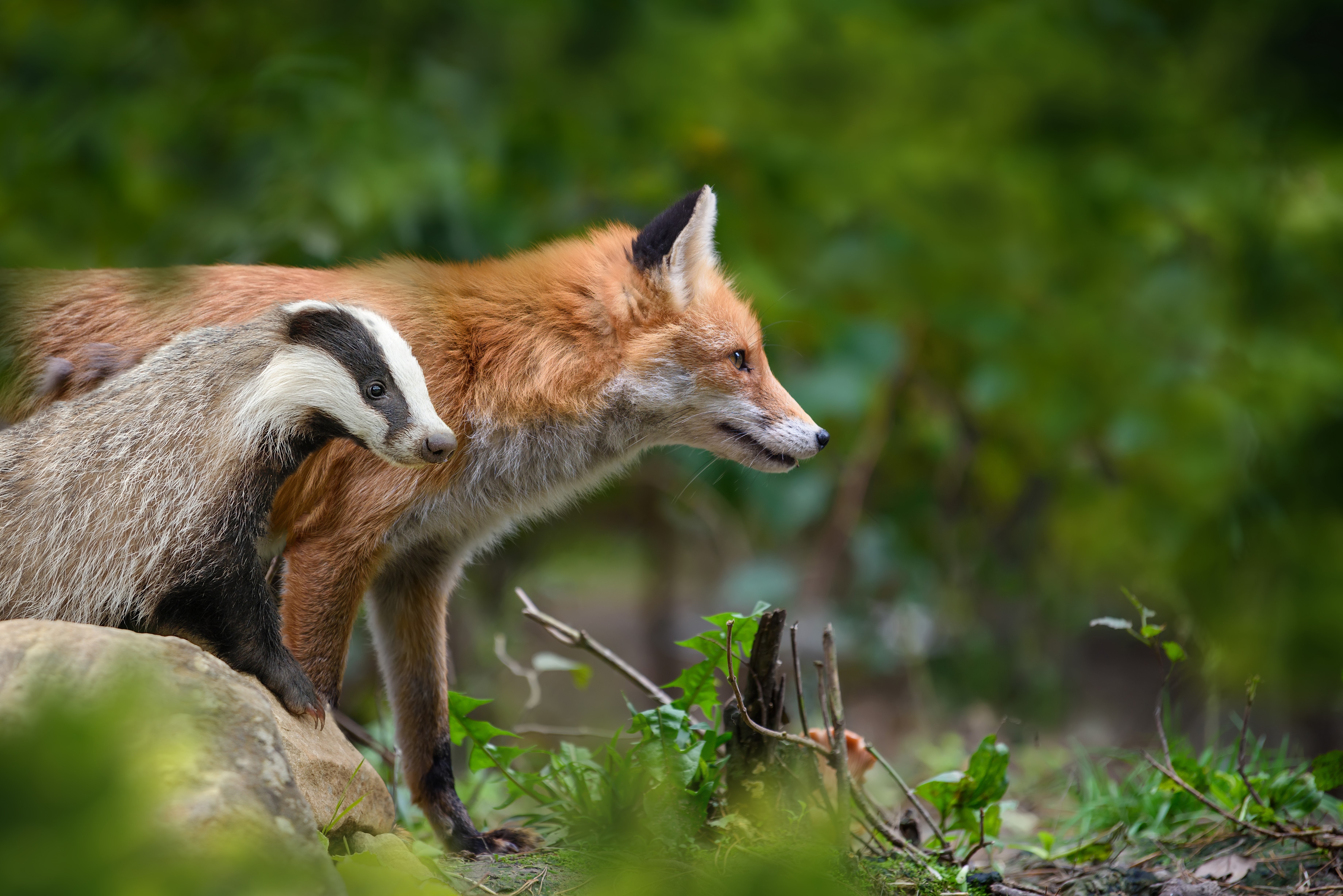Bluetongue in Germany- December 2018
Update on Bluetongue (December 2018)
Bluetongue 8 confirmed in Germany
- The German authorities confirmed a case of Bluetongue virus serotype 8 (BTV 8) on the 12/12/2018
- The case was detected in the region of Rastatt, Baden-Wurttemberg which is close to the French border (where both BTV 8 and 4 are present).
- The disease was confirmed in 2 animals on a farm with a total of 91 cattle.
- This is the first case of Bluetongue in Germany since November 2009.
- The German authorities have implemented measures to control the disease including setting up zones in which the movement of animals is restricted, surveillance, vector control and vaccination.
- DAFM will continue to monitor the situation closely. Animals imported from Germany will be tested for BTV on their arrival in Ireland as a precaution.
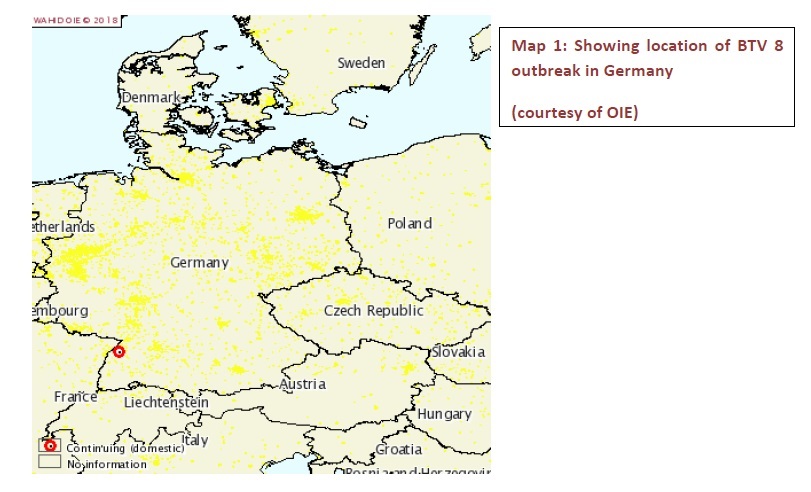
Key points on preventing bluetongue coming to Ireland via imported animals
- Anyone considering importing ruminant animals from bluetongue affected countries (Map 2 below & Germany) should only do so if absolutely necessary as this is the most likely route of introduction of the bluetongue virus into Ireland. Please read and follow these biosecurity guidelines before making any decision to import.
- Even animals with bluetongue vaccination records may harbour BTV.
- The bluetongue vector season in Ireland is likely to be between April and early December.
- If bluetongue is introduced to Ireland, it could have a major impact on our export markets. Also, the control measures required by the EU would have a significant impact on local herd management.
- Do not buy or accept animals which have been recently imported without carefully checking their origin.
- Seek additional assurances to ensure that animals are not infected with BTV prior to departure, such as a recent negative PCR test for bluetongue carried out in an accredited laboratory.
On arrival, keep any imported animals isolated and indoors until they have been tested for BTV by staff from this Department and have returned a negative test result.
- Infected animals may not show any clinical signs and may only be detected through testing their blood for BTV.
- Bluetongue does not affect humans and there are no food safety issues with BTV.
For updated map of Bluetongue restricted zones in Europe please click here.
For further information on Bluetongue please click here.
NDCC
